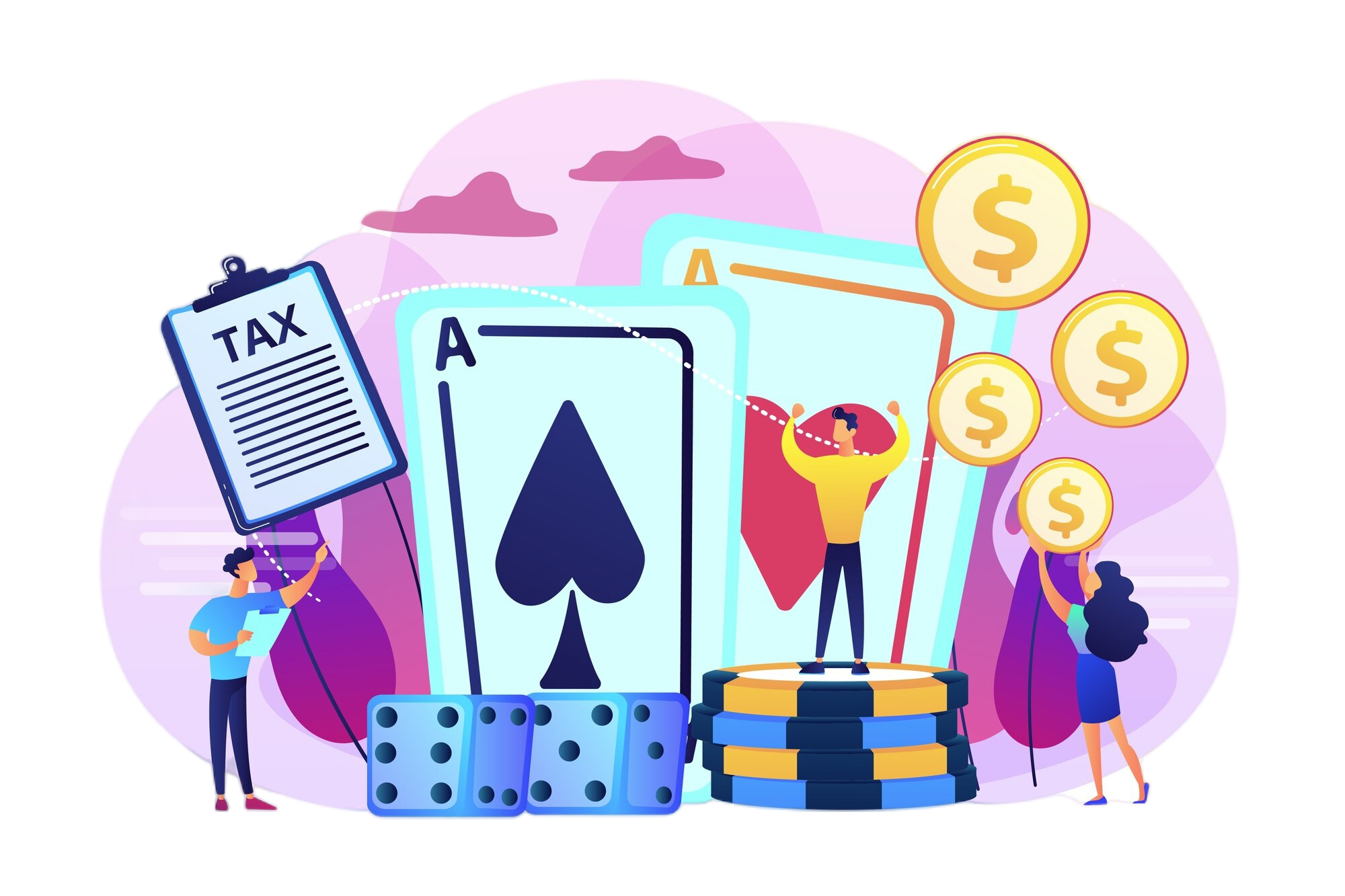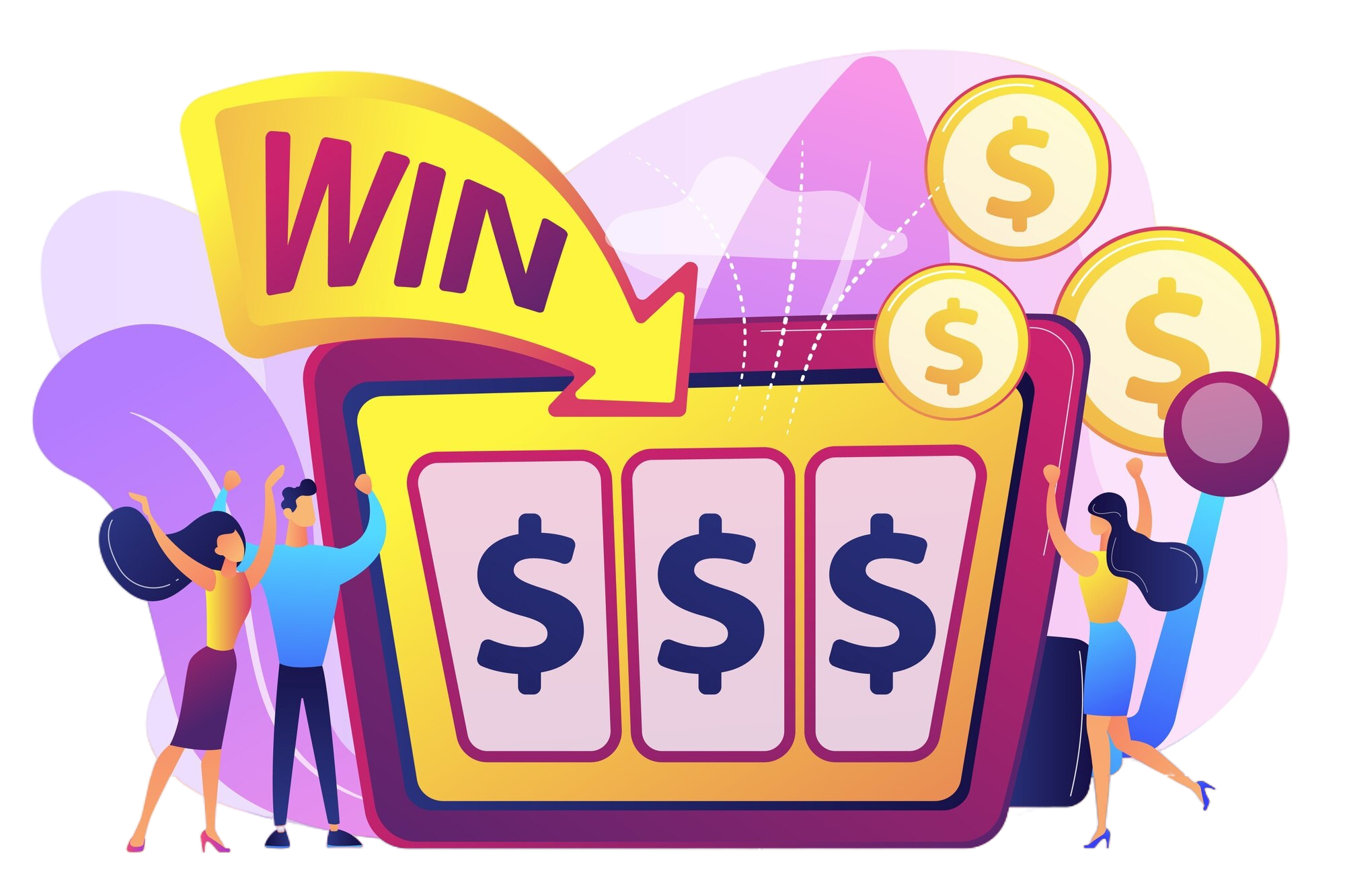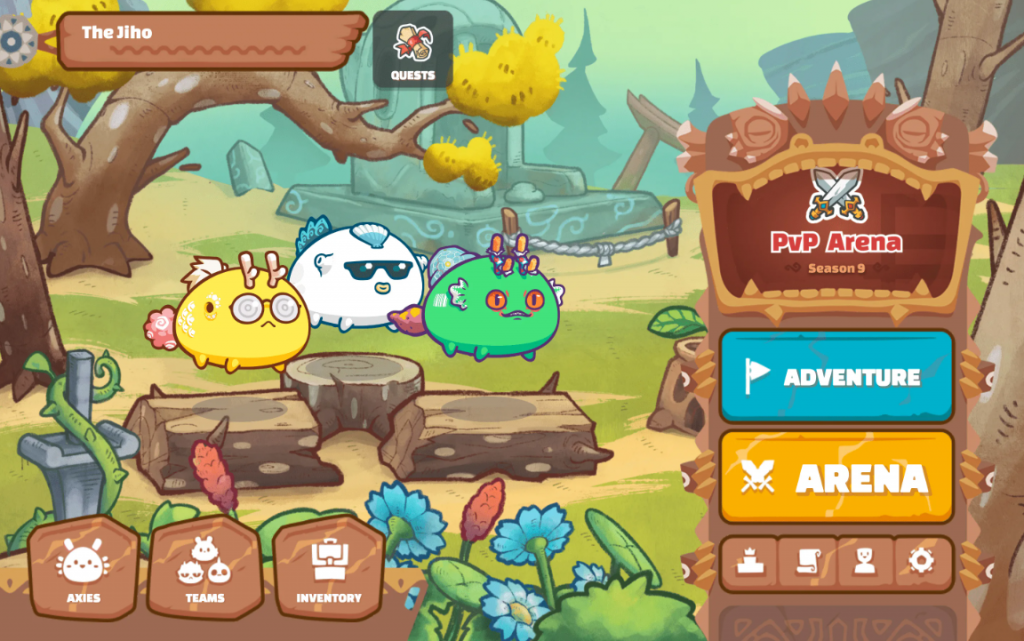1. Pick a Preferred Game
Review the types of NFT games available in the market. An NFT game can have battleground, racing, town construction, or any other theme. Pick a theme you like and understand the gameplay in detail.
The NFT gaming industry has been trending since the first Non Fungible Token was introduced in 2014. Read on to learn how NFT games work.
NFT games leverage blockchain technology to create virtual assets and native crypto tokens, which are essential to play. Cryptokitties was the world’s first game to use virtual cat NFTs. Depending on the game concept, an NFT can be anything: pets, punks, cards, weapons, apparel items like shoes or watches, buildings or land parcels, or unique in-game avatars.
The price of this virtual asset might vary according to its statistics, rarity, and unique attributes. For example, in racing NFT games like Chicken Derby, the healthy and fast chickens with the best overall record often have a higher value as they are likelier to win the race.
These items, however, do not have a real-world existence. The developers probably got the idea to create an NFT game by observing people’s interest in collecting rare stamps, coins, jewellery, and even art pieces.
Some games offer free NFTs, while some require you to buy them at the start of the game. These are available on trading platforms like OpenSea, Binance NFT, or the game’s marketplace. If the price of an NFT item you wish to use in the game is too high, you can also rent it.
The information on NFTs in each account is well-secured on the blockchain. NFT crypto games are usually played on Ethereum and Binance Coin Blockchain. Like a traditional video game, some NFT games are available on digital distribution platforms like Epic Games Store, and each has its own community of followers.
You all know about crypto tokens like Bitcoin. Does it make any difference if you exchange one Bitcoin with another? Absolutely not! That means cryptocurrencies are fungible tokens that can be replaced with each other as they are alike. However, that is not the case with something that is non-fungible.
NFT is a Non-Fungible Token with a unique existence, backed by a smart contract on the blockchain. With the NFT technology, you cannot exchange an NFT randomly with another since these tokens have unique algorithms backing them. Moreover, the specifications and features of each NFT differ from one another. However, you can trade them for other NFTs or sell them on the marketplace. Like crypto tokens, their value is determined by speculation.
NFTs can be items within a game or available as standalone collections of art forms, like Cryptopunks and NFT mystery boxes like The MOBOX and The My Neighbour Alice collections. You can also find music, memes, Access NFTs, domains, or photo NFTs. Some are even redeemable, which means they can be exchanged for real-world assets. An example is Uniswap’s Unisocks NFT.
NFT games have two main components: the gaming assets, or NFTs, and the tokens used in the gameplay. Some games reward through tokens, while others offer free NFTs that can be traded in the marketplace. Let us know a bit more about these.

Play-to-earn games might or might not require any investment at the start of the game. You might get certain free tokens to start the game or buy them from an exchange, according to how the game is designed.
Depending on the game's dynamics, you can earn more tokens by completing quests, challenges, or tournaments. These can be traded at supporting exchanges like other crypto tokens. For example, in Townstar, you play with GALA tokens or Cryptoblades with SKILLS tokens.

Players can also be rewarded with NFTs instead of game tokens. Some games offer free NFTs, while some require you to buy some NFTs at the start. In such games, the gameplay might involve collecting NFTs or doing stuff to get rewarded with higher value NFTs. Some games can be a combination of tokens and NFTs.
For example, the NFTs of Cryptokitties— can be traded at secondary marketplaces. You can also breed them to improve their power and create value.
An evident answer to why NFT games are better is that you can earn money by playing them. But there is more to it. Let us discuss some reasons behind the craze of NFT games.
Players own the NFT assets they buy or earn during the game in their crypto wallet. These can be used in similar games on the blockchain or even traded on an open exchange. In other games, the use cases of the items purchased are limited to the platform, and there is no chance of using them in other games or earn passive income with them. That is why some traditional game developers have introduced NFTs to their existing games; for example, Ubisoft added them to Ghost Recon Breakpoint in 2022.
The chance to make money by playing is certainly lucrative. Some games reward players individually, while some distribute prizes among them. NFT games allow players to earn by actively playing the game and also passively by trading the game tokens and NFTs in markeplaces. Another benefit of NFT is that you can lock your token to get liquidity or use it to win more rewards.
Players are part of the game community and can suggest how to improve or regulate the game quality. The gaming platform owners often give voting rights to the token holders, through which they become part of the ecosystem. You can improve the game’s mechanics, characters, or levels according to your own preferences.
Players’ NFT assets can easily be used or transferred on compatible platforms. This adds a fun element and gives players more reasons to buy NFTs.
The buying and selling of in-game assets and tokens is completely secured on the blockchain. Moreover, since these are decentralised, the transactions are made peer-to-peer and third parties are not involved.
While most NFT developers create limited editions, some might also mint copies of them. So, there could be a scope for duplication of game assets when playing NFT games. As the user requests to buy NFTs, the smart contracts self-execute, verifying all the ownership details and value of the item. Only then is the transaction processed.
There is a straightforward way to begin playing an NFT game. You will follow the steps below.
Review the types of NFT games available in the market. An NFT game can have battleground, racing, town construction, or any other theme. Pick a theme you like and understand the gameplay in detail.
To buy NFTs, you must have a compatible crypto wallet to store them. Various wallets owned by respective crypto exchanges are available, such as Metamask, Coinbase, Exodus, WazirX, Binance Web3, and so on. You can also store them offline on hardware wallets such as Trezor.
To start the purchase, you should have crypto tokens in your wallet that are acceptable in the particular NFT marketplace. You can buy them from any crypto exchange
Once you have the tokens, you must go to an NFT exchange and find the desired items under ‘Auction’. Place the bid on your chosen item. There are many NFT marketplaces, such as Opensea and Binance NFT. You have to connect your wallet to the marketplace to make the purchase. You can also buy NFTs from the in-game platform.
Some popular NFT projects that deliver a thrilling gaming experience are:
Game of Silks is a blockchain game based on thoroughbred horse racing based in the racing metaverse. These NFT games work with 10,000 stable owners or Genesis Avatars NFTs and land parcels to reap valuable tokens. You can buy and sell SILKS on OpenSea, LooksRare, X2Y2, and Blur marketplaces. The price of Genesis Avatars in this NFT game is based on their skill and rarity.
A Free Play-to-Earn card NFT game, Gods Unchained works on Immutable X, a Layer 2 solution on Ethereum. Immutable Pty Ltd is an Australian gaming company.
The game focuses on building decks of cards to beat the opponents within any of the five game modes, from Tutorial, Solo to Ranked and Gauntlet of the Gods. You start with a collection of 140 cards, divided into six God decks and subsequently fuse them using another set of non-NFT Core cards (THE FORGE) to create Meteorite NFT cards to trade in native or NFT marketplaces. Flux, an in-game resource in later game modes, helps merge similar cards within the FORGE to create higher-value cards. Players can earn Expansion packs, including NFT cards, by winning weekend tournaments.
The transactions are done with the in-game currency GODS.
This is a runner-type NFT game like the famous Temple Run, where apes race through the sewer to find a key. This game works on a unique concept of Access Pass NFT, which you must own to be part of. The players in top positions on the leaderboard receive exciting tradeable NFT prizes.
Yuga Labs, who owns the famous Bored Ape Yacht Club (BAYC) NFT collections developed Dookey Dash. BAYC NFT owners received Dookey Dash NFTs for free, while others not part of BAYC had to purchase limited-time NFTs from the marketplace. Recently, in September 2025, the developers launched Dookey Dash Unclogged to take the concept to the next level.
Loot is not a typical NFT game. It is a collection of 8000 text-based NFTs written in white over a black backdrop, that can be used across different games or projects.
Each NFT loot bag has 8 words related to an adventurer’s gear, like a medieval hero. These could be Silver Ring of Anger, Divine Slippers, or Divine Robe of Protection. Initially, Loot was just a collection of NFTs like Cryptopunks, and the the NFT holders were to decide the use case.
Subsequently, AGLD currency, based on the Ethereum blockchain, was introduced for the Loot NFT world, used in projects like Realms, The Genesis Project, and the Loot Character.
It is a fantasy sports-based crypto game in which you collect and trade digital player cards of real-life players with other team managers. Sorare was released in 2018 in Paris and involves football, baseball, and basketball games. The player cards are NFTs and use the Ethereum blockchain. They can also be sold on secondary marketplaces.

Developed by Sky Mavis studio, based in Vietnam, Axie Infinity is based on the Ronin Network, a side chain on the Ethereum blockchain. The game uses NFTs, which are digital pets that look like axolotls. Players can breed, collect, raise, fight, and build kingdoms with them to increase their value and ultimately trade them at a higher value. Axie Infinity Shards or AXS is the main in-game currency, along with a secondary token— SLP (Small Love Potions).
Let us quickly discuss some aspects you must know about playing NFT games.
Some NFT games use an initial investment with in-game tokens or NFTs to start playing, while some offer them for free, which you further breed/mint to add value.
You must consistently play NFT games for a certain amount of time. It takes time to create items other players would want to buy.
Crypto tokens and NFT value are subject to speculation by interested parties. You should consider the high volatility before staking in NFT gaming projects.
You must have an NVIDIA GeForce GTX 650 graphics card to play the game involving NFTs. Moreover, depending on the game you pick, you need at least 1 GB of free disk in your system. You should have a CPU equivalent to an Intel Core i5-4400E and a minimum of 8 GB of RAM. NFTs run on PCs with Microsoft Windows 10×64 and upwards.
Chainlink is an important component required to build NFT games. Let us know more about it.
It is a serverless, self-serve development platform that helps a Web3 games developer access any API to improve the nature or form of an NFT. Chainlink helps create dynamic NFTs, like upgrading a weapon or creating a character with varying skills. It connects off-chain data to the smart contract governing the game to make these modifications, as blockchains have scalability issues.
Currently, NFT games and applications on different blockchains cannot communicate with each other. This protocol helps target a larger player base by ruling out the interoperability limitations. It will help NFT games optimise speed and cost.
Unlike RNGs, blockchains are relatively open systems, and any game developer has difficulty obtaining fair and random numbers that cannot be tampered with. The VRF protocol offers randomness in NFT raffles, distributions, airdrops, or giveaways. Also, with this, no outside party can predict a map or, say, a random strike in an NFT game.
NFT and blockchain projects face many limitations, such as enumerated below:
NFT gaming projects are more likely to create player-centric communities, and they are more likely to decide the project flow of an NFT project in the future. With VR and AR technology, players can expect more reality in the virtual world, which will be much more immersive. Moreover, NFTs will be more advanced and upgraded, adding more exciting mechanisms to the gameplay. Developers and regulators will also be keen to make games more inclusive and fair as compared to now.
With NFT games, the gaming sphere has advanced to levels that was difficult to imagine until now. The popularity of NFTs is primarily attributed to the fact that players have multiple use cases for buying and holding them, like their usability across blockchain projects, locking them for liquidity, or trading for other cryptocurrencies.
The future of gaming is dependent on how well blockchain projects can create interoperability to use these NFTs better and make gaming more holistic. This will catch the interest of players and make them buy and own them, inflowing money into the ecosystem.
An NFT game developer makes money by charging fees for in-game purchases or trading them. Axie Infinity charges a 4.25% fee for trading Axes. Players earn money in these games by collecting NFT collectables, earning in-game tokens, and exchanging them for other known cryptocurrencies.
You can lose money by losing NFTs in the game or if the value of the NFT you hold falls due to speculation. Sometimes, you might even lose your NFT by inadvertently giving access to scammers or attempting to transfer it to an unsupported wallet.
Playing NFT games is safe if you understand the game correctly and play carefully. You should know the token and blockchain of your game and is your crypto wallet supports it. Also, you should always pick reputable and trustworthy gaming projects to avoid foul play.
Returns on NFT games can be taxed based on the usual tax rate, which can go up to 37%, or the capital gains associated with selling them, just like cryptocurrencies.
In games where you need to buy NFTs to start the game, you need supported cryptocurrencies. Most games have in-game currencies that can be used to transact and get rewarded.
It depends on how far you go in the game and its mechanics. If you breed rare NFTs, you can have a greater potential payout.